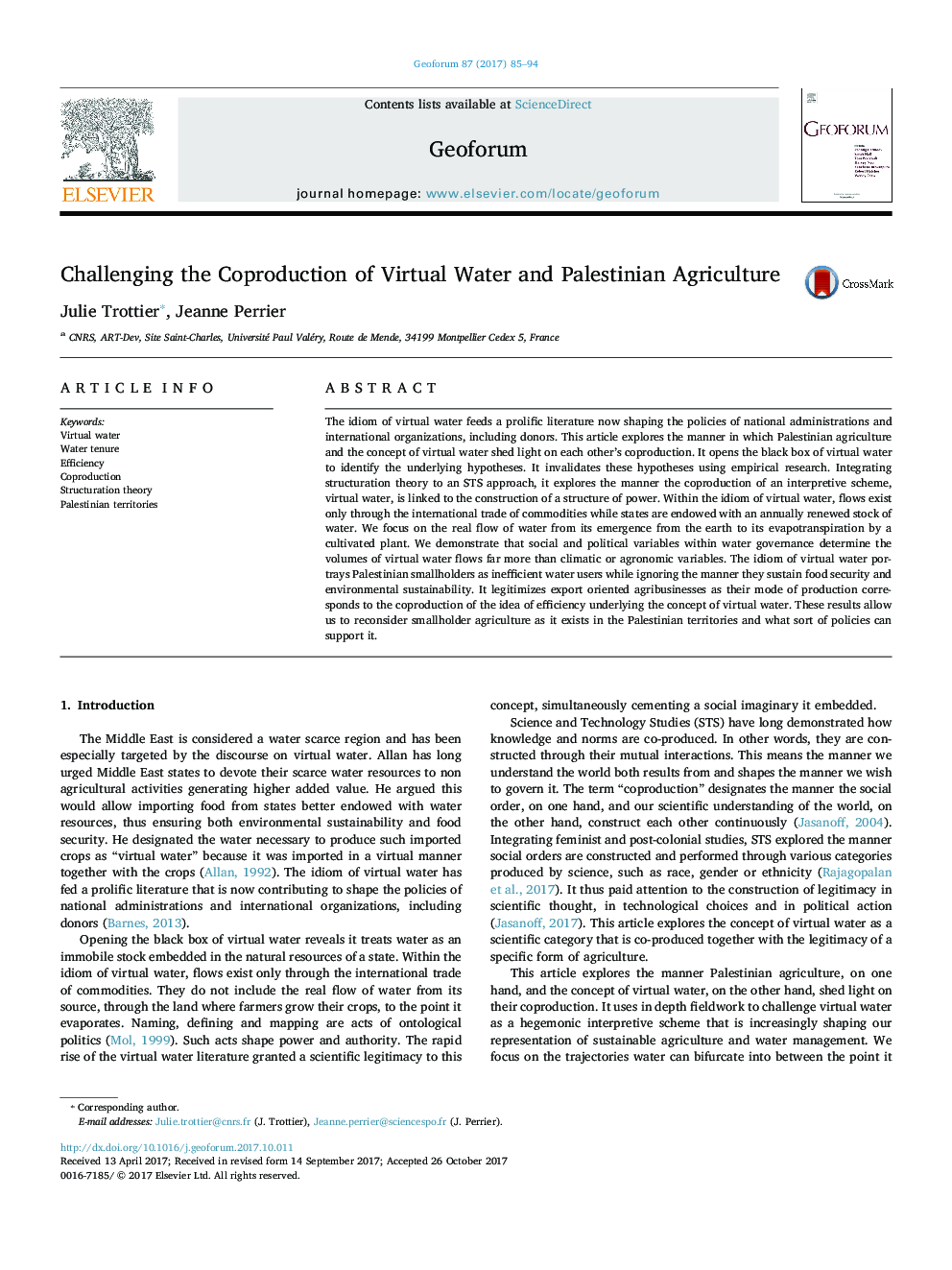| Article ID | Journal | Published Year | Pages | File Type |
|---|---|---|---|---|
| 7354007 | Geoforum | 2017 | 10 Pages |
Abstract
The idiom of virtual water feeds a prolific literature now shaping the policies of national administrations and international organizations, including donors. This article explores the manner in which Palestinian agriculture and the concept of virtual water shed light on each other's coproduction. It opens the black box of virtual water to identify the underlying hypotheses. It invalidates these hypotheses using empirical research. Integrating structuration theory to an STS approach, it explores the manner the coproduction of an interpretive scheme, virtual water, is linked to the construction of a structure of power. Within the idiom of virtual water, flows exist only through the international trade of commodities while states are endowed with an annually renewed stock of water. We focus on the real flow of water from its emergence from the earth to its evapotranspiration by a cultivated plant. We demonstrate that social and political variables within water governance determine the volumes of virtual water flows far more than climatic or agronomic variables. The idiom of virtual water portrays Palestinian smallholders as inefficient water users while ignoring the manner they sustain food security and environmental sustainability. It legitimizes export oriented agribusinesses as their mode of production corresponds to the coproduction of the idea of efficiency underlying the concept of virtual water. These results allow us to reconsider smallholder agriculture as it exists in the Palestinian territories and what sort of policies can support it.
Related Topics
Social Sciences and Humanities
Economics, Econometrics and Finance
Economics and Econometrics
Authors
Julie Trottier, Jeanne Perrier,
